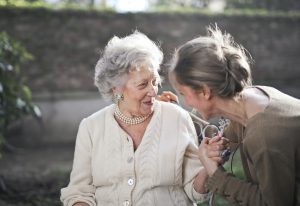My not-bucket List
Some people, when they get to be my age, make a bucket list – that is, those activities they would like to do before they die. Well, I decided to make a list of the things I don’t ever care to do and am happy that I haven’t done…so here is my short not-bucket list:
Go sky diving. While this might be one many people’s bucket list, I have no desire to go skydiving. I just can’t imagine that the euphoria at having survived jumping out of plane and relying on a parachute for my life would ever override the sheer terror of the falling feeling. In fact, I would probably have a heart attack and die of fright on the way down.
Own a snake. I hate snakes and would never call one a pet. I would always be worried that it would escape and I would find it in my shoes one day all dried up, or worse yet, that it would curl up in the shower or hide in my closet. A big snake might eat my little dog or cat. Snakes seem like tricky creatures that would give me nightmares. Nope, no snakes for me.
Smoke a cigarette. No, I have never smoked a cigarette. In fact, when I was about 8 years old and my Dad was once smoking a cigar, which he did only occasionally (being more of a pipe man himself), I wanted to be like him and try a smoke. Dad said okay, and told me to take a big deep breath to inhale that delicious cigar smoke. As you might imagine, the fitful coughing after that one drag, combined with his laughter, cured me of ever wanting to smoke anything – thus Dad’s lesson. He did, however, teach me great technique in stuffing his pipe, though not smoking one!
Go bungee jumping. Even if we set aside all the health hazards of having your hips and knees nearly yanked out of their sockets, your pelvis twisted and jolted, or the risks of having a stroke from all the blood rushing to your brain as you hang upside down, this is not appealing at all to me. Those with hiatal hernias or GERD should not put this on their bucket list. Similar to my feelings about sky diving, I just would not trust that the bungee cord would be strong enough or short enough to make it worth the thrill. Even with a go-pro camera to record the event, I’m sure that my screaming would overshadow any future comedic home movies that would come from it.
Get drunk. I can’t see the attraction of getting drunk and not remembering what you did the night before. I guess that it makes for funny big screen movies, but vomiting all over the carpet and having to clean it up the next day when sober just doesn’t make it onto my list of anything remotely resembling fun. Besides, if I ever got inebriated, I would probably be found dancing on a table in a nightclub, make the evening news, and embarrass my kids to death.
Get a kidney stone. I have already had one kidney stone and they are definitely not fun. I don’t care to have another, so I drink plenty of water throughout the day. It is true what they say, that the pain can be excruciating and intractable. Kidneys stones should be on the “avoid at all costs” list of everyone.
So, what’s on your not bucket list?
Guest Blog: Holiday Gifts for Showing Caregivers They Are Appreciated
Sometimes the holidays bring with them conundrums, and figuring out good gifts is usually one of them. Finding a present that expresses how much you value the caregiver in your life can be particularly challenging. We’ve pulled together a list of ideas that go the extra mile for that special someone who always serves above and beyond for you or your loved one.
Rest and relaxation
It’s no secret that caregivers bear a heavy burden. Selecting a gift that provides relaxation and comfort can bring meaningful restoration to those in the role of caregiver. Consider an aromatherapy diffuser with essential oils in soothing scents, such as lavender, sandalwood, or vanilla. Along those same lines, you could assemble a gift basket for an indulgent bath. Choose oils, lotions, and bath salts in a favorite scent, and add a luxurious towel and some herbal teas.
If you really want to wow your caregiver, consider splurging on a new mattress. Some of the bed-in-a-box options are particularly outstanding, and it can be delivered straight to the recipient’s door. Look for a top-rated mattress that can fit any sleep style. For example, the Leesa is one great option. It’s a highly-rated foam mattress that’s optimal for all sleeping styles and is perfectly poised between soft and firm.
Connection and caring
Sometimes a break is the best gift you can give someone who is in the role of caregiving. Consider a gift certificate to a local restaurant or movie theater, and include a handwritten note on pretty paper or a card saying you will cover care during the meal.
If your time is tight or the duties are too complex, offer to perform a task for the caregiver instead. Pick up groceries, take her car for an oil change, then get it washed and waxed, or do some yard work or housekeeping. If the caregiver can’t break away, consider reaching out with an offer to bring a meal over. You can prepare lunch and sit down together, which is a chance for companionship and conversation – a gift often beyond immeasurable value.
For an ongoing gift, a meal delivery service can be a boon to caregivers, making nutritious food easy and convenient, or consider a coffee club subscription. If you’re good friends, considering having a movie night together. Popcorn, a dvd, and a few hours of friendship can provide much needed respite, and choosing a comedy offers the bonus of allowing you both to laugh off stress.
Happiness and hobbies
Certain kinds of activities tend to fall by the wayside for caregivers. With that in mind, consider ways to help your caregiver pursue a hobby interest. You can assemble a gift tote of supplies, such as for crafting, baking, or woodworking. Add a note explaining that once a week you’ll cover care, or you could hire an aide to cover that time periodically.
If your special caregiver loves events, tickets to a tour, concert or play can be ideal. Another idea is to purchase participation in a class your caregiver would enjoy, such as in culinary arts, yoga, or music lessons.
For booklovers, a new e-reader could be just the ticket, along with a gift card to download some books. Journaling is a popular stress-reliever for caregivers, allowing them to sort through emotions and process events of the day. Consider purchasing a handmade journal and selecting an especially beautiful pen to go with it.
For caregivers who are primarily housebound, a bird feeder which mounts to the window or could hang from a nearby tree can provide hours of peaceful entertainment and stress relief. Add a pair of binoculars, seed, and a bird identification guide to make your gift complete.
Caregiving is a challenging burden, and those who take on the responsibility are worthy of special gifts. Consider options which show how much you appreciate their self-less, loving assistance. The holidays are the perfect season for demonstrating how grateful you are to the caregiver in your life.
Guest Blog: How to Best Care for Elderly Patients with COVID-19
COVID-19 is an infectious disease that is characterized by dry cough, fever, and fatigue. It is usually caused by SARS-CoV-2 coronavirus. Most of the people who suffer from this disease end up recovering even without receiving any treatment. Others become seriously sick and need intensive medical care. The people who are at risk of severe illness are older adults and people with underlying health conditions. That is why you need to be careful when taking care of an older adult suffering from COVID-19. Below are more details on how you should take care of such a person.
Help Cover Their Basic Needs
Just like other people, older people suffering from COVID-19 have basic needs that have to be met. For instance, they need to eat, put on clothes and sleep well. Therefore, as a caregiver, you need to ensure that the sick person eats and sleeps well. When shopping for foods, buy them fresh vegetables, fresh fruits, legumes, and unprocessed food. Eating these foods will help boost the patient’s immune system, helping them recover from COVID-19.
You should also encourage the patient to take at least eight cups of water every day. This water will transport nutrients throughout their body and regulate their body temperature. If they are not willing to drink too much water, encourage them to consume fruits and vegetables that contain water.
Ensure That They Take Their Medications
COVID-19 patients are often advised to take a few over-the-counter medicines that help manage COVID-19 symptoms. For instance, some of them are told to take medications that help reduce fever and cough syrups. Hiring in-home senior care would ensure that your patient takes all their medications.
While caring for this person, you should check whether the prescribed medications are helping improve the patient’s symptoms or not. If they are not improving, you should contact the patient’s doctor. You should also help the sick person follow any other instructions given by the doctor.
Monitor The Patient’s Symptoms
You should constantly monitor the symptoms that the sick elderly are experiencing. A home pulse oximeter can help you do that. This medical device measures the amount of oxygen in a person’s bloodstream. Therefore, it can help you know when your patient is experiencing difficulty in breathing. For instance, if it shows a reading of less than 92%, you should know that the patient is experiencing difficulty in breathing, and you should have them hospitalized. You should also have your patient hospitalized if they are experiencing emergency warning signs. These warning signs include:
- Bluish face or lips
- Blue, pale, or grey-colored nail beds, skin or lips
- Persistent chest pain
- Trouble breathing
- Confusion
Do Not Leave the Patient Alone
You may be tempted to go out and leave your patient alone after you notice that they are doing fine. However, you should not do that as the patient’s health condition may worsen after you go out. If you have to go out, request a good in-home senior care provider to take care of the sick person while you are away.
While spending time with the sick person, you should wear a face mask and encourage the sick person to wear a face mask. You should not touch your face mask while wearing it, and you should throw it away immediately after use. You should also ensure that you stay at least 6 feet away from this person.
Clean The Patient’s Personal Items
While caring for an older adult suffering from COVID-19, you should clean this patient’s personal items. For instance, you should wash their clothes and personal household items. You should use regular detergent to clean these items and warm water. You should wear disposable gloves while cleaning these items. After you are done cleaning them, remove the gloves and wash your hands with water and soap. You should place the dirty gloves in the waste bin kept in the sick person’s room. You should also clean the surfaces in your home that people often touch. These surfaces include tabletops, doorknobs, and counters.
COVID-19 is an infectious disease. That is why you need to be careful when caring for an elderly person suffering from this disease. You should ensure that this person takes their medications, eats well, and gets enough rest.



